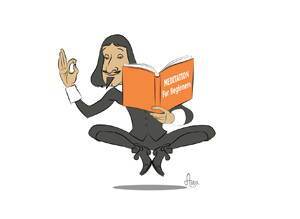Food, Glorious Food For Thought
Tim Madigan on what philosophy means to him. “Food, glorious food!What wouldn’t we give forThat extra bit more –That’s all that we live forWhy should we be fated toDo nothing but broodOn food,Magical food,Wonderful food,Marvelous food,Fabulous food!”‘Food, Glorious Food’ from the musical Oliver! It has been my great fortune to write a regular column for […]
Food, Glorious Food For Thought Read More »





